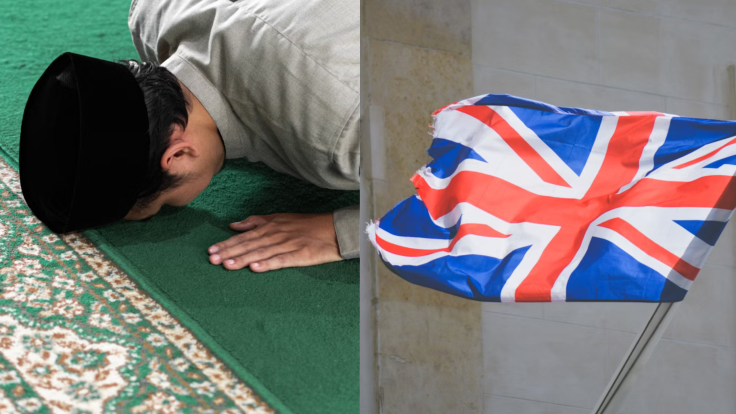Violent Incidents Involving Migrants Fuel Complex Debate on Safety and Islamophobia in Europe

KEY POINTS
- Migrant-linked crimes stoke security fears across Europe
- Governments face balancing act between safety and free speech
- Public divided on Islamophobia and immigration policies
Europe faces mounting public anxiety as several high-profile violent crimes involving migrant suspects, many Muslim, have sparked heated debates on immigration, public safety, and freedom of speech.
Governments, particularly in the UK, are grappling with accusations of prioritising political correctness and labelling criticism as 'Islamophobia' rather than addressing citizens' security concerns.
Attack on American Model in Dresden Highlights Tensions
In one widely reported case, American model John Rudat was stabbed in the face after intervening to protect women being harassed on a tram in Dresden, Germany.
The attacker, a 21-year-old Syrian migrant, was initially released by police due to 'lack of evidence' but was re-arrested days later, according to Hindustan Times and The New York Post. Rudat's viral video statement criticised Germany's immigration policies, saying the attack exposed 'an immigration problem.'
Similar cases have drawn criticism over alleged underreporting or downplaying of crimes committed by migrants to avoid stoking anti-immigrant sentiments.
Growing UK Debate on Islamophobia and Crime
In the UK, allegations linking migrants, particularly from Islamic communities, to sexual offences have reignited public anger.
Prime Minister Keir Starmer recently described Islamophobia as 'the real problem,' sparking backlash on social media platforms including X (formerly Twitter).
Critics argue that this rhetoric conflates legitimate criticism with hate, while others accuse officials of protecting ideology at the expense of safety.
Public Outcry and Culture Clashes
Social media posts accuse authorities of 'importing rapists and pedophiles' and ignoring cases of Islamic extremism. Commentators such as @WillKingston warn the term 'Islamophobia' is being weaponised to silence debate.
Meanwhile, ordinary citizens from Dundee to Düsseldorf report taking self-defence measures amid perceived law enforcement failures.
In Monaco, tensions surfaced when a migrant refused to leave a restaurant for praying on its floor—an incident some see as symbolic of wider cultural and legal conflicts.
Islamophobia is a word created by fascists, and used by cowards, to manipulate morons. https://t.co/cNI6wR9mtg
— Will Kingston (@WillKingston) August 26, 2025
"Don't touch my little sister, she's twelve". The state of Scotland: a girl who should be playing with dolls has to carry a knife to fight off imported attackers.
— Leo Kearse - on YouTube & GB News (@LeoKearse) August 24, 2025
Why does the left want this to happen? Do they still believe a multicultural utopia is about to spring up? pic.twitter.com/Rrc8AFbn4V
Keir Starmer confirms that real problem in UK is Islamophobia. pic.twitter.com/JofdZ0abyX
— RadioGenoa (@RadioGenoa) August 25, 2025
Complex Realities and the Question of Banning Muslims
While banning Muslims in Europe is legally and morally untenable, rising violent crimes connected to some migrants—especially young men from conflict zones—raise significant concerns. Experts emphasise that most Muslims are law-abiding contributors to society, but ignoring cultural and religious contexts in crime discussions risks dangerous denial.
The debate intensifies over the need for stricter vetting, accountability, and open criticism of harmful practices without the fear of being labelled 'Islamophobic.'
🚨🇩🇪BREAKING NEWS
— Radio Europe (@RadioEuropes) August 25, 2025
3 Muslim migrants r*ped a German woman in Germany for hours. pic.twitter.com/JiR1TXXb4r
Broader Data Paints a Nuanced Picture
Despite public fears, recent studies reveal no simple correlation between immigration and crime spikes. Research by Germany's ifo Institute, cited by Deutsche Welle, found that migrants tend to settle in urban areas with generally higher crime rates, but foreign-born and native populations alike contribute similarly to these statistics.
Further, data from Eurostat indicates that sexual violence and other crimes fluctuate across Europe, influenced by many factors beyond immigration alone (Eurostat 2025 crime stats).
An Islamist migrant enters a restaurant in Monaco and starts praying on the floor. The manager politely asks him to leave, but he refuses and says it’s his right to pray wherever he wants.
— Dr. Maalouf (@realMaalouf) August 27, 2025
How do you even fix this kind of behavior? pic.twitter.com/8CMeygQQGh
Europe at a Crossroads
The recent violent incidents and political responses reveal a continent struggling to reconcile security, integration, and freedom of expression. As governments face pressure from all sides, the challenge remains to protect citizens without succumbing to scapegoating or suppressing legitimate discourse.
© Copyright IBTimes 2025. All rights reserved.




















